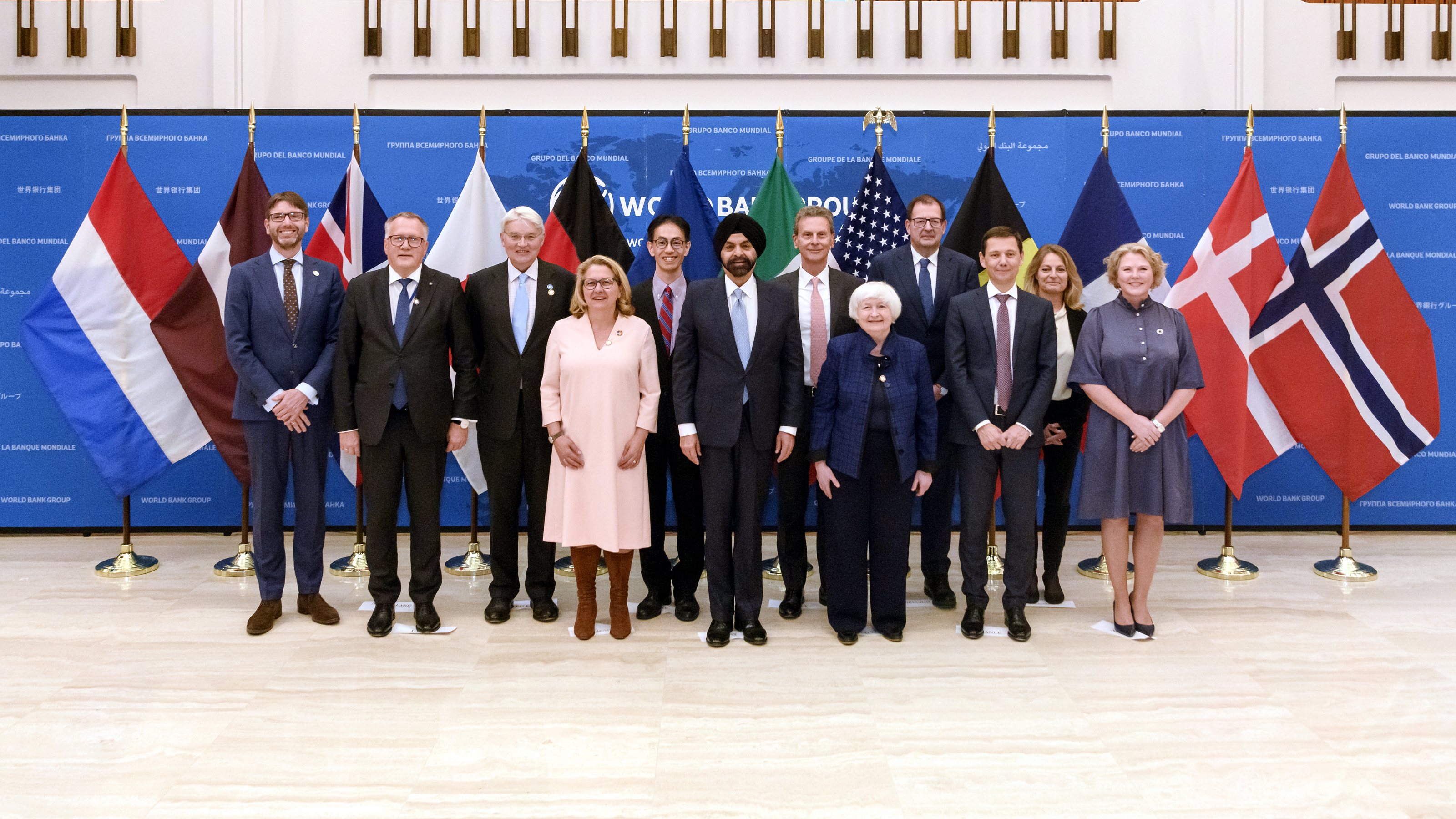World Bank Group
The World Bank was founded along with the International Monetary Fund (IMF) at the United Nations Monetary and Financial Conference in Bretton Woods (USA) in July 1944.
Both institutions are specialised agencies of the United Nations and are headquartered in Washington, DC. The Spring Meetings and Annual Meetings of the World Bank and the IMF take place at the same time.
The US is the largest shareholder of the World Bank Group, with 16.3 per cent of the shares, and traditionally appoints the President.
The World Bank Group consists of five organisations:
- International Bank for Reconstruction and Development (IBRD (External link))
As the lead institution of the World Bank Group, IBRD provides loans to middle-income countries. Germany is IBRD’s fourth largest shareholder with a capital share of 4.6 per cent. - International Development Association (IDA (External link))
IDA is the World Bank Group’s fund for the poorest countries. It provides low- to zero-interest loans and grants. The fund is replenished every three years. Germany is the fourth largest donor and contributed 1.9 billion US dollars to the current (early) replenishment round (IDA20). - International Finance Corporation (IFC (External link))
IFC supports private companies in developing countries. Germany is the third largest donor with a capital share of 5.5 per cent. - Multilateral Investment Guarantee Agency (MIGA (External link))
MIGA insures private-sector direct investment in developing countries by offering guarantees against political risks. Germany is the third largest donor with a capital share of 5.0 per cent. - International Centre for Settlement of Investment Disputes (ICSID (External link))
ICSID is an independent body within the World Bank Group. It provides facilities for arbitration in investment disputes between governments and foreign investors. Germany has been a member of ICSID since it was founded in 1966.
The first two of the institutions mentioned here – IBRD and IDA – are collectively referred to as the “World Bank”.
The BMZ’s cooperation with the World Bank Group
Within the German government, the Federal Ministry for Economic Cooperation and Development (BMZ) is responsible for the World Bank Group. German Development Minister Svenja Schulze is Germany’s Governor at the World Bank Group.
In addition to the Minister acting as one of the 25 members of the Board of Governors, Germany is also represented by an Executive Director on the Supervisory Board.
- Financing Global Survival In a joint contribution for Project Syndicate, the Prime Minister of Barbados, Mia Amor Mottley, and German Development Minister Svenja Schulze urge institutions such as the World Bank and the International Monetary Fund (IMF) to invest more in climate protection and sustainability to secure the future of our planet. Internal link
- Information from the World Bank about its structure and tasks External link
- Office of the German Executive Director at the World Bank Group External link
- The World Bank Open Knowledge Repository External link
- Research and Publications | Data base with access to the research results and publications of the World Bank Group External link
As at: 20/03/2023






